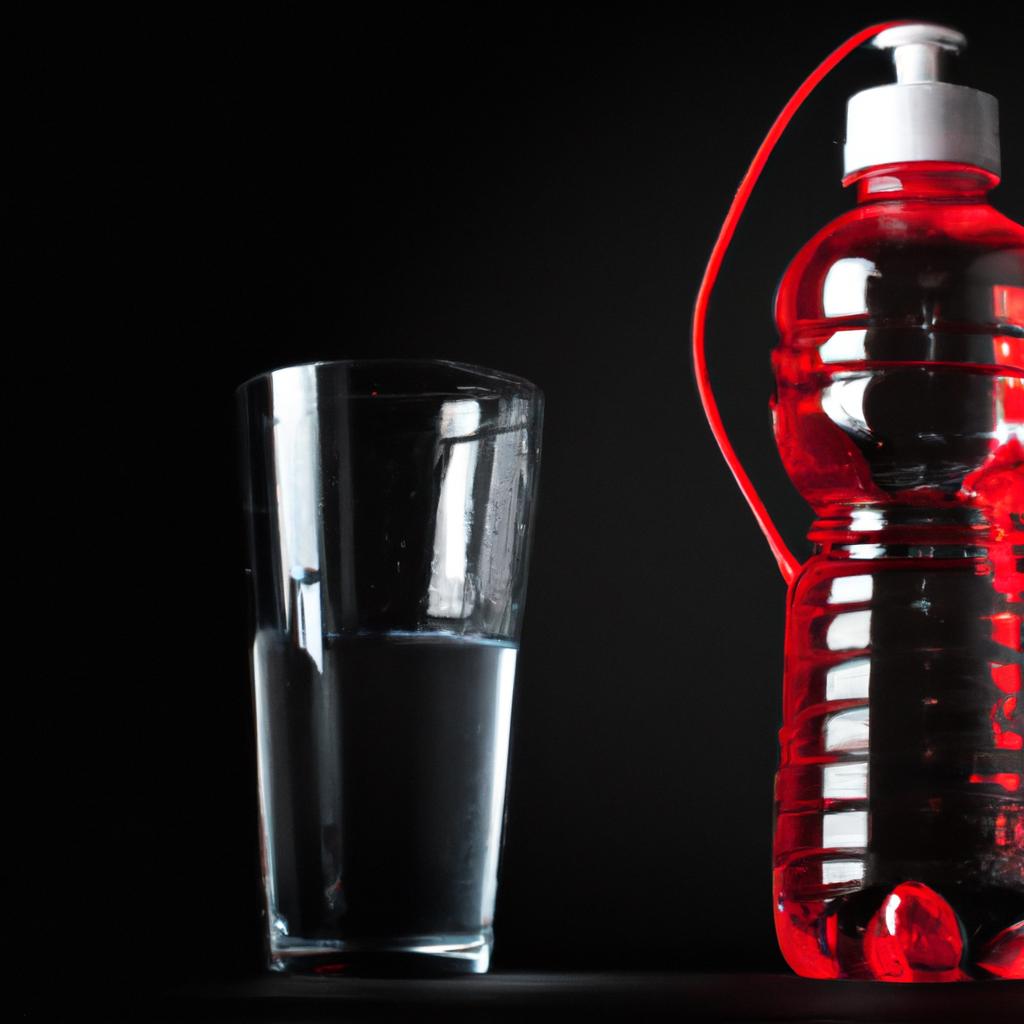**”Hydration and Performance: The Impact of Hydration Strategies on Cognitive Function During High-Intensity Workouts”**
# Hydration and Performance: The Impact of Hydration Strategies on Cognitive Function During High-Intensity Workouts
In the realm of fitness, the physical aspects often take center stage, overshadowing the critical role hydration plays in enhancing both physical and cognitive performance. While hydration is commonly associated with maintaining bodily functions, its influence extends far beyond mere physical endurance. In high-intensity workouts, where both the body and mind are pushed to their limits, effective hydration strategies can significantly impact cognitive function. This blog post will explore the relationship between hydration and performance, offering insights into hydration tips, exercise advice, and the health benefits of proper hydration.
## The Importance of Hydration in High-Intensity Workouts
### Understanding Hydration
Hydration refers to the process of providing adequate fluid to the body, maintaining a balance of electrolytes and fluids essential for optimal functioning. During high-intensity workouts, the body loses water and electrolytes through sweat and respiration. This loss can lead to dehydration, which can impair not only physical performance but also cognitive function.
### The Connection Between Hydration and Cognitive Function
Cognitive function refers to various mental processes, including attention, memory, and decision-making. Research indicates that even mild dehydration can adversely affect these cognitive functions, leading to decreased focus and increased perception of effort during workouts. When the brain does not receive sufficient hydration, it struggles to operate efficiently, resulting in slower reaction times and reduced coordination—critical components for high-intensity performance.
## Nutrition Tips for Effective Hydration
### Pre-Workout Hydration Strategies
To optimize hydration before engaging in high-intensity workouts, consider the following tips:
1. **Hydrate Early**: Start hydrating at least 24 hours before your workout. Aim for at least 16-20 ounces of water in the hours leading up to exercise.
2. **Electrolyte Balance**: Incorporate sports drinks or electrolyte-rich foods (like bananas and avocados) into your pre-workout nutrition to replenish essential minerals lost during sweat.
### During Workout Hydration
1. **Regular Water Intake**: Drink 7-10 ounces of water every 10-20 minutes during your workout, especially if it lasts longer than an hour.
2. **Choose Electrolyte Drinks for Extended Workouts**: For workouts exceeding 60 minutes, consider a sports drink containing carbohydrates and electrolytes to maintain energy levels and hydration.
### Post-Workout Recovery
1. **Rehydrate**: After your workout, drink at least 16-24 ounces of water for every pound lost during exercise. This helps restore hydration levels and supports recovery.
2. **Nutrient-Dense Foods**: Pair your post-workout hydration with foods rich in vitamins and minerals, such as leafy greens, nuts, and whole grains, to optimize recovery.
## Exercise Advice for Maximizing Hydration
### Tailoring Your Hydration Plan
Every individual has unique hydration needs based on factors such as body weight, workout intensity, and environmental conditions. To maximize hydration effectiveness:
1. **Monitor Your Sweat Rate**: Conduct a simple test by weighing yourself before and after workouts. The difference in weight, adjusted for fluid intake, can help you understand your sweat rate and hydration needs.
2. **Adjust for Climate**: Hot and humid conditions increase fluid loss. In such cases, increase your fluid intake accordingly, adding electrolyte-rich beverages to combat losses.
### Listen to Your Body
Your body provides signals about its hydration needs. Pay attention to signs of dehydration, such as dry mouth, fatigue, and decreased performance. Staying attuned to your body’s signals can guide your hydration strategy effectively.
## Health Benefits of Proper Hydration
### Enhanced Cognitive Function
Proper hydration not only supports physical performance but also enhances cognitive function. Adequate fluid intake can improve focus, reaction time, and decision-making abilities, leading to better overall workout performance.
### Improved Recovery
Hydration plays a vital role in recovery post-exercise. It aids in transporting nutrients to cells, removing metabolic waste, and reducing muscle soreness.
### Overall Health Benefits
Consistent hydration supports various bodily functions, from regulating body temperature to maintaining joint lubrication. It also contributes to skin health, digestive function, and overall well-being, making it a crucial aspect of a healthy lifestyle.
## Conclusion
In summary, hydration is a cornerstone of optimal performance during high-intensity workouts, significantly impacting both physical capabilities and cognitive functions. By implementing effective hydration strategies—such as pre-, during, and post-workout hydration, along with tailored fluid intake based on individual needs—you can enhance your workout performance and overall health. Prioritizing hydration not only boosts physical endurance but also sharpens mental acuity, ensuring that you bring your best to every workout.















Post Comment